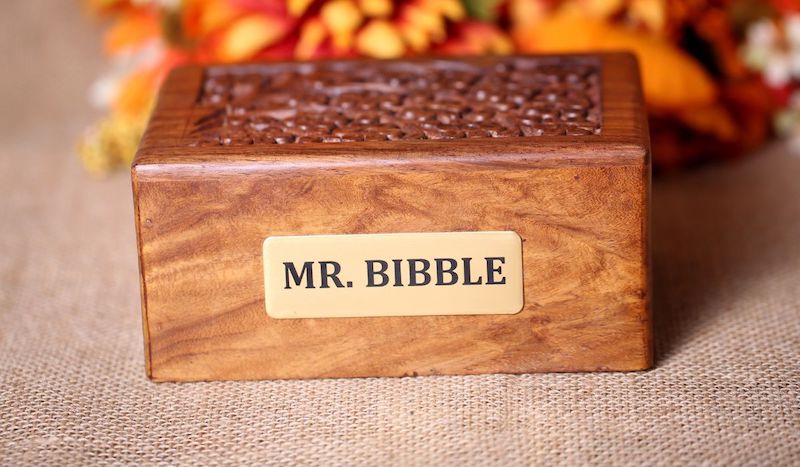Losing a pet can be the most heartbreaking experience in a pet owner’s life, especially if they have to make the difficult decision to euthanize their pet.
However, as a pet owner, you are also responsible for understanding how to help your pet pass away peacefully when the time comes.
There are different options available, and choosing the one that is best for your pet’s needs is crucial in making this process easier for everyone.
Therefore, in this article, we will explore different ways to help your pet pass away peacefully, including hospice care, palliative care, euthanasia, and natural death at home.

Preparing for Your Pet’s Departure
Losing a pet can be a profoundly emotional and challenging experience. As you prepare for your pet’s departure, it’s important to consider various aspects to ensure their comfort and dignity.
Here are some considerations to help you navigate this difficult time:
Recognizing the Signs
As a pet owner, it is important to recognize the signs that your pet is nearing the end of their life.
Some common signs of nearing the end of life include:
- Old age.
- Loss of appetite.
- Difficulty breathing.
- Loss of interest in activities.
- Difficulty standing or walking.
- Continual pain.
- A sharp change in their personality.
If you notice any of these signs in your pet, it may be time to start preparing for the end.
Consulting With a Vet
After you start noticing signs in your pet’s behavior that may indicate nearing the end of life, seeking advice from a vet is essential.
Professional guidance includes assessing your pet’s condition, discussing potential treatment options, and exploring compassionate end-of-life care.
By acknowledging these signs and seeking expert advice, you can navigate this emotional process with care and consideration for your beloved pet’s well-being.
Making the Decision
Deciding to euthanize your pet is never an easy decision, but it may be the kindest option to end their suffering.
Throughout this decision-making process, prioritize your pet’s quality of life and overall well-being by upholding their comfort and dignity.
Upon reaching the decision to proceed with euthanasia, plan for your pet’s end-of-life care. This involves determining the procedure location and who will be present to support you and your pet.
Consider commemorating your pet’s life in a meaningful way, whether through a heartfelt ceremony or creating a lasting memorial to honor their legacy.
During this emotional period, remember that you are not alone.
Lean on the support of friends, family, or compassionate support groups to navigate the grieving process and find solace in cherished memories of your beloved companion.
Preparing Your Pet for a Peaceful End-of-Life Transition

Creating a Peaceful Environment
One of the best things you can do for your pet during their last days is to provide them with a comforting and stress-free environment.
Make sure their bed or blanket is extra soft, and surround them with their favorite toys or items that bring them joy. Keep the room temperature comfortable and ensure that there is adequate lighting.
You may also want to play soft music or use aromatherapy to create a calming atmosphere.
Managing Pain and Discomfort
If your pet’s condition worsens, they may experience pain and discomfort.
It is important to work with your vet to manage these symptoms effectively.
Your vet may prescribe pain, anti-inflammatory, or other medications to help your pet feel more comfortable.
You can also try natural remedies such as acupuncture, massage, or herbal supplements to help alleviate pain and discomfort.
In addition to medication, you can also make your pet more comfortable by providing them with soft bedding, heating pads, or cooling mats to help regulate their body temperature.
Make sure that their food and water are easily accessible and that they are getting enough to eat and drink.
If your pet is having difficulty eating or drinking, you may need to offer them softer foods or provide them with a feeding tube.
Finally, giving your pet plenty of love and attention during this difficult time is important. Spend time with them, talk to them, and let them know how much you love them.
Offer them verbal support and encouragement, and take every opportunity to show them how much they mean to you.
Saying Goodbye

Saying Goodbye to Your Pet
Saying goodbye to your pet can be one of the most difficult experiences in life.
However, ensuring that your pet is comfortable and feels loved during its final moments is still essential.
Here are a few ways to say goodbye to your pet:
- Hold your pet and talk to them in a calm and reassuring voice.
- Offer your pet their favorite treats or toys.
- Play soft music or read a book out loud to your pet.
- Take your pet for a final walk or car ride.
Remember to cherish the time you have left with your pet and make their final moments as comfortable and peaceful as possible.
Involving Family Members in Bidding a Loving Goodbye
Saying goodbye to a pet can be a difficult time for the entire family.
It’s essential to support each other during this challenging time.
Here are a few ways to say goodbye to your pet as a family:
- Host a small ceremony or memorial service for your pet.
- Create a scrapbook or photo album of your pet’s life.
- Plant a tree or flowers in your pet’s memory.
- Donate to a local animal shelter or rescue organization in your pet’s honor.
Remember to take care of each other and allow yourselves time to grieve.
Saying goodbye to a pet is never easy, but you can get through it together with love and support.
After Your Pet’s Passing

After your pet has passed away, it’s important to take care of yourself and find ways to cope with your grief.
You may also want to consider memorializing your pet in a way that honors their memory.
Coping with Grief
Grieving the loss of a pet is a natural and normal process, but it can be difficult and overwhelming.
Here are some things you can do to help cope with your grief:
- Allow yourself time to grieve and process your emotions.
- Reach out to supportive friends and family members.
- Consider joining a pet bereavement support group online.
- Express your feelings through writing, art, or other creative outlets.
- Take care of your physical and emotional needs, such as eating well and getting enough rest.
- Pick up a hobby.
Memorializing Your Pet

Creating a memorial for your pet can be a meaningful way to honor their memory and keep them close to your heart. Here are some ideas:
- Plant a tree or garden in your pet’s favorite spot.
- Create a shadow box with items like a collar, toy, or blanket.
- Have a portrait or sculpture made in your pet’s likeness.
- Donate to a pet-related charity in your pet’s name.
- Write a poem or story about your pet.
Whatever you choose to do, remember that it’s okay to take your time and do what feels right for you.
Your pet will always hold a special place in your heart.